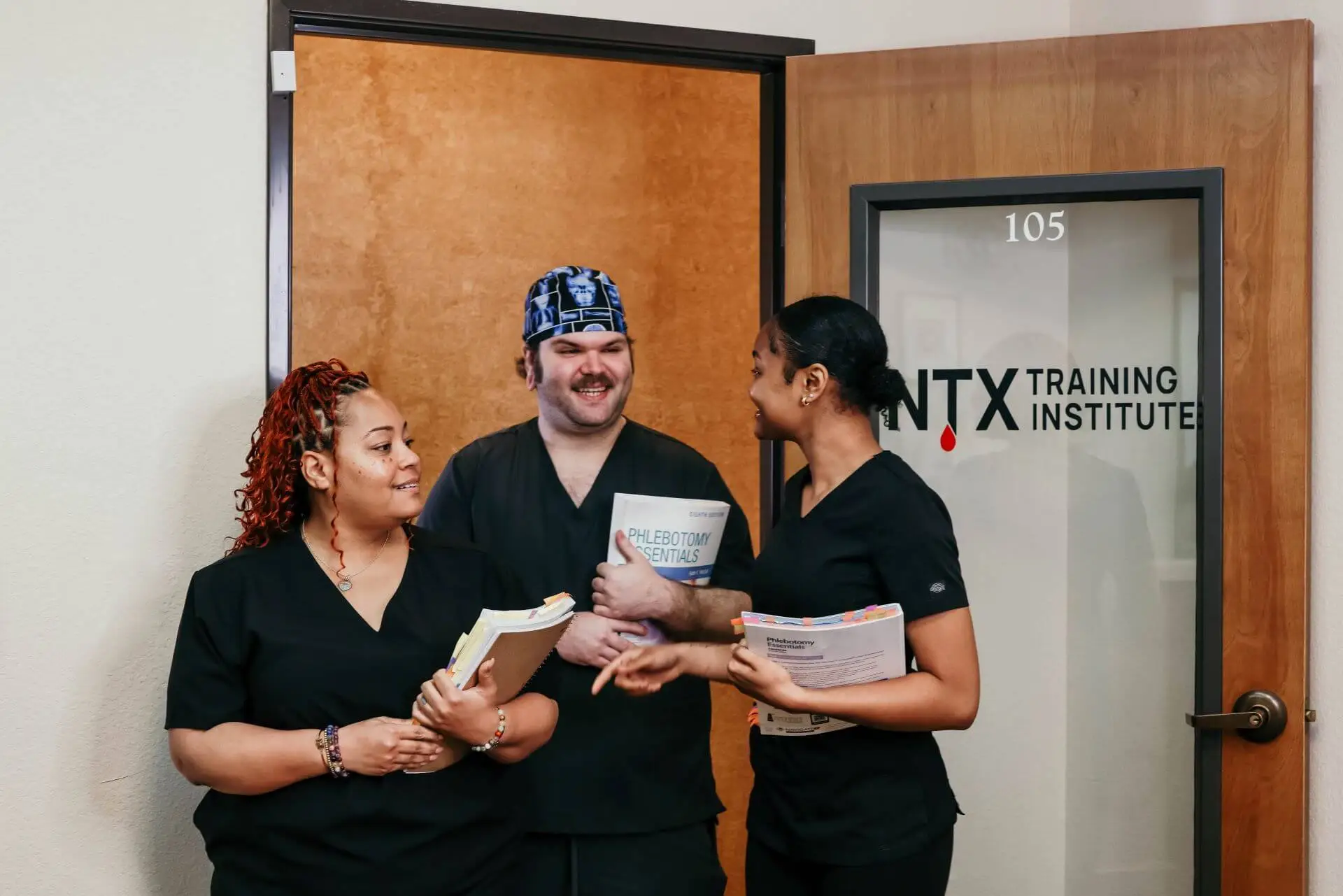So you’re thinking of becoming a phlebotomist: Before you enroll in a training program, though, you need to decide which phlebotomy certification is best for you.
In this blog, I’ll break down five of the most common phlebotomy certifications to help you decide which is right for you:
- Certified Phlebotomy Technician
- Phlebotomy Technician
- Limited Phlebotomy Technician
- Donor Phlebotomy Technician
- Registered Phlebotomy Technician
But first, a quick note on what, exactly, phlebotomy certification is.
Training and certification show employers that you’re qualified.
Want to draw blood in a lab or doctor’s office? Get phlebotomy training first, then take a test for certification.
Certification means you’ve taken a course and passed one of several exams, qualifying you to work as a phlebotomist.
Which phlebotomy certification is best depends on the state you want to practice in. One thing is consistent across the US, though: phlebotomy certification is preferred by employers. It’s much easier to get a job as a phlebotomist if you go through the training process and sit for an exam.
Texas does not require certification, but employers often do.
Some states require certification. Texas does not.
However, employers still look to certification to determine who’s qualified. That means your choice should be about which program offers you the best return on your investment.
Choose from five types of certification.
Here’s more about how each one stacks up.
1. Certified Phlebotomy Technician (CPT) certifications make the most sense for aspiring phlebotomists.
With accredited training, a CPT certification is a great starting point for your career as a phlebotomist. That’s why we chose to get accredited through the National Healthcare Association (NHA) and allow students to sit for the CPT exam on the last day of class.
Training Time: 56 Hours (Seven Weeks)
Job Opportunities: High
Cost: Below Average
Through the training process, students will be able to perform all the essential procedures, like venipuncture and skin puncture, maintain equipment, and prepare samples for testing. Training takes as little as seven weeks, at least at NTX.
2. Phlebotomy Technician (PBT) certifications could be a good next step after you’ve built up experience.
Obtaining a PBT certification is a little more advanced than CPT, preparing you to deal with special cases like pediatric or geriatric patients.
Training Time: 140 hours
Job Opportunities: Above Average
Cost: High
If you already have CPT, PBT certification could be a good next step. However, it covers many areas you probably won’t need starting out, so it might not make sense to get PBT first.
3. Limited Phlebotomy Technician (LPT) certifications can only perform certain blood draws.
LPT certifications are a good fit for individuals who are not interested in finding the best employment possible and are happy performing a limited range of blood draws—specifically, skin puncture blood collection.
Training Time: 20 Hours
Job Opportunities: Limited
Cost: Average
In many states, LPTs need only 20 hours of classroom time, so it’s less time-intensive than other programs. This certification may be right for some people, but if you’re going to invest the time to train to become a phlebotomist, you’ll probably want to train and test for a certification that offers more opportunities.
4. Donor Phlebotomist Technician (DPT) certifications will limit your options.
Phlebotomists who train, test, and obtain a Donor Phlebotomist Technician (DPT) certification will be limited to phlebotomy for blood donation. That means employment at blood banks, mobile blood donation, and blood donation drives.
Training Time: 20-50 Hours
Job Opportunities: Severely Limited
Cost: Low
We don’t recommend it for young people, but if you’re not interested in any other kind of work besides blood donation, a DPT is a sure bet.
5. Registered Phlebotomy Technician (RPT) certifications make sense for highly experienced, advanced phlebotomists.
Registered Phlebotomy Technician (RPT) certifications are for people who have been working in the field for a few years and want to expand their range of work, such as administration work in the lab.
Training Time: 1000 Hours
Job Opportunities: High (If experienced)
Cost: High
It’s not the certification you’ll want to begin your phlebotomy career with because it requires a high investment of money and time just to get started.
NTX Training Institute offers training for Certified Phlebotomy Technicians.
Simply put, we think a CPT is the best option for those new to the healthcare industry and want entry-level positions. We believe we have the most convenient options and the best instructors. Take a look:
- Night or day classes
- Experienced instructors
- Accredited coursework
- Hands-on instruction
Enroll today to start training for a career in phlebotomy.
– Roxanne Lozano, Founder & Lead Instructor
NTX Training Institute


